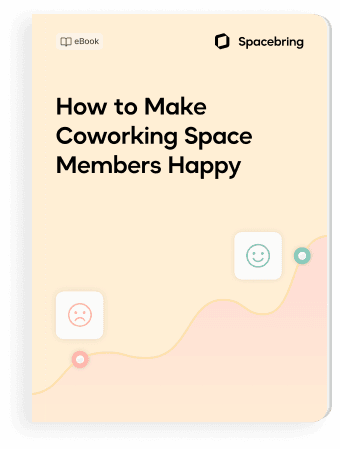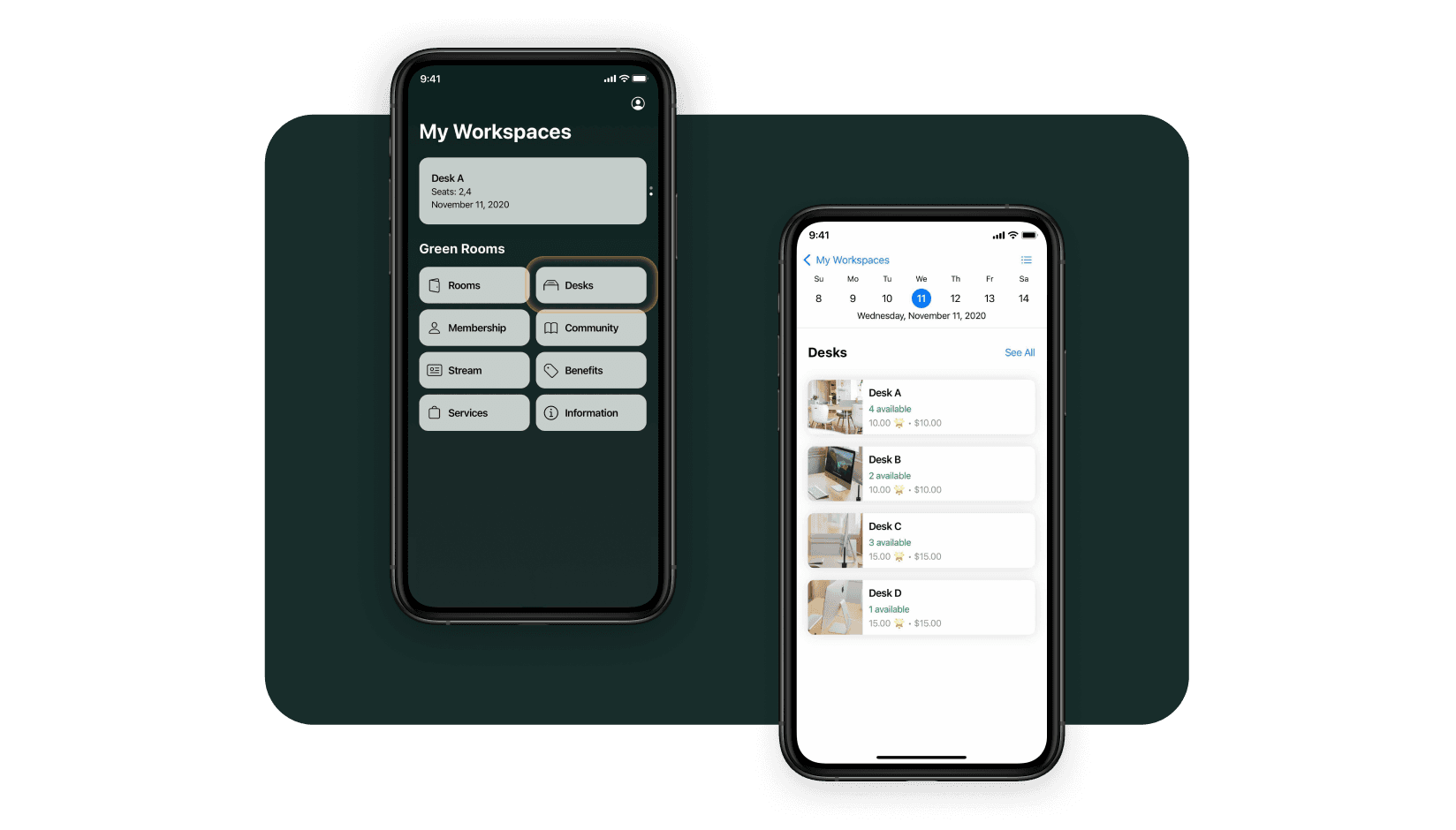- Features
- Solutions
- Pricing
- Resources
- Contact
- Book a demo
How to Handle Difficult Customers and Collect Positive Reviews for Your Coworking Space

With the coworking industry slowly returning to work, businesses are looking for ways to attract members to their coworking spaces. Quality customer service has always been a source of competitive advantage in this business, so focusing on building a new strategy is a good idea.
In this post, we’re sharing seven tips on handling “difficult” coworking members and maintaining brand image and reputation. This strategy is always relevant for coworking businesses, especially now when customers are becoming pickier.
Consider these tips to improve your member experience management and business reputation.
1. Appoint a Head of Culture
Coworking is all about a sense of community and positive culture. One way to foster them is to appoint a special person — the head of culture. This person will be responsible for dealing with all customers, much like a community manager.
In terms of dealing with difficult members, the head of culture will make sure that your rules and policies are enforced.
Specifically, this person will:
- Accept complaints and take action or member/guest abuse of policies and rules.
- Talk with members about their behavior if necessary (both in-person and online).
- Communicate and explain the rules of your coworking space.
Consider training a current employee to be the head of culture. Getting knowledge of culture management is not a problem — there’s a ton of free online courses out there. By training an existing employee instead of hiring a new one, you can also save some money.
2. Respond, Don’t React

As a manager of a coworking space, you need to be able to put your emotions aside when dealing with members. Talking to difficult ones might be a very stressful experience, but it’s your job to be respectful and respond to their concerns.
Let’s consider a situation. A customer comes to a coworking manager with a complaint and speaks to them in a totally unpleasant and unprofessional way. In this case, the manager has two options:
- React to their unprofessional attack to protect themselves.
- Respond by putting their ego to the side and focus on the problem.
If the manager chooses to react, they’ll be likely to escalate the situation. Even though defending ourselves is our natural instinct, reacting to an attack can quickly make matters worse.
Unlike reacting, responding is based on logic and professionalism. It means ignoring the attack and focusing on figuring out the problem. In most cases, it’s a better way to deal with members and win more customers, regardless of how difficult they are.
3. Send Misconduct Warning Emails
Trying to handle a difficult member in person might not be a good idea. In many cases, it might come off as treating the situation as more serious than it really is. Reserve this method for situations where someone violates your policies continuously.
A more considerate option is to send a notification email. Your head of culture can write it to notify the member about the problem.
Here’s how they can write it.
“Hello [customer name],
Hope everything is okay with you.
I’ve received reports from a few other coworking members that you often play very loud music. While having fun during work is something we promote, we’re also about mutual respect and getting the job done.
As a solution, I think it’s a good idea to listen to music in headphones. With this small change, you’ll continue to be a great member of our growing community.
Please reply if you have any questions.”
A response written in a defensive and combative manner means the person is likely to ignore your advice. For example, they might use overly emotional responses, blame others, or come up with numerous excuses. In this case, consider canceling their membership.
But if the person acknowledges their fault and writes a respectful response, chances are they will change their behavior. So, it might be safe to assume that they won’t cause similar problems in the future.
So, the way the person responds to that email will help to determine if they’re a good fit for your coworking community. Don’t forget to send a follow-up email — email reminders could help and monitor that person’s behavior to see any changes.
4. Use Live Chat and Chatbots for Support
Accessible and continuous support is one of the biggest coworking customers’ needs that businesses must meet. Live chat and chatbot are good ways to do that. These customer support tools are commonly used by eCommerce brands and can serve your coworking business, too.
With live chat, a coworking manager can communicate with website visitors easier. This way, you can answer common questions about your coworking in real-time. Should any unwanted situation happen, a member or guest can quickly reach you.
Live chat is easy to add to a coworking app and site (it takes just a few minutes). Besides, you can customize your live chat to match your brand colors.
Another must for customer communication is a chatbot. Through website chatbots, companies provide 24/7 customer support, collect feedback, and share basic information. This customer service tool would be quite useful for a small support team.
A coworking manager can use a chatbot to:
- Share links to their business page on online review platforms
- Encourage customers to leave reviews with chatbot messages
- Answer coworking FAQs 24/7 to maximize support availability.

Discover the keys to the happiness of your coworking space members.
5. Automate Desk Booking
Why not try and avoid unwanted situations altogether? One way to minimize coworking member frustration is to allow them to book workstations/meeting rooms themselves. This way, there’ll be a free desk or work station waiting for them when they arrive.
Spacebring desk booking solution is an example of a desk automation system. It’s an easy feature inside the app your coworking members can use to check out desk availability and make bookings.

It’s very simple to use. To book a workstation at your coworking space, your customer:
- Opens the app to see the real-time list of available desks
- Chooses a seat and books it in seconds
- Pays instantly thanks to the integration with popular gateways, including Apple Pay and Google Pay
- Gets a notification as the booking time approaches.
This is one of the ways how your coworking space can provide self-service. A member doesn’t have to get any help from the manager — just go to the chosen desk and start working. This way, a coworking space app can help you get positive reviews.
6. Set Clear Guest Policies
The way your coworking business handles guests, both walk-ins and those invited by members, defines client experience in many ways.
For example, members involved in IT outsourcing might invite many guests to product presentations or other meetings, which lead to the coworking being too crowded and noisy. Another example is walk-in guests using all perks of members (using conference rooms, printing, etc.)
Enable clear guest policies to avoid complaints from unhappy members.
For example:
- Define perks that guests are entitled to (and not).
- Consider using designed areas for guests to stay in while working.
- Write a clear policy regarding when and how guests can use meeting and conference rooms (after signing in with the manager, etc.)
- Allow a certain limited number of free guests that a member can invite per day
- Make clear that guests must follow the same etiquette rules as members.
Share these policies with members via your coworking newsletter, community newsfeed, and social media pages. Adding live chat to your website will also help to quickly answer guest policy-related questions from potential customers.
7. Protect Your Members During the Pandemic
As coworking spaces continue to reopen all around the world, they need to face a different reality. New floor layout, sanitation, masks, and other requirements are now mandatory — and a must-do to keep your customers safe.
Here are more safety measures to implement:
- Update rules of conduct to avoid direct contact between coworking users (compulsory hand washing, sanitizing, wearing masks, etc.)
- Adapt workstations by adding plexiglass barriers between them.
- Install hand sanitizing stations throughout the space.
- Develop a unique routing that allows meeting the 6-feet distance requirement.
- Organize cleaning procedures to occur throughout the day and every evening.
- Make face masks readily available for all users.
By implementing these best practices of COVID-19 protection, you’ll avoid complaints or losing members altogether. Also, many users will show appreciation by writing good reviews — a type of social proof that can get you more business.
Conclusion
Dealing with difficult customers while continuing to collect good reviews is no easy task. Being strategic about your effort to maximize customer satisfaction is essential, as there are many areas to focus on.
Use these seven tips to build your strategy to keep your coworking members and guests satisfied, safe, and productive. The times are tough, but focus on meeting people’s needs rather than getting profits — and they’ll reward you with more visits.
Need more tips on retaining members? Find them here: How to Retain Members in Coworking Spaces.
Keep Reading

The Future of Coworking: Adapting to the Rise of Hybrid Work Models

Spacebring Joins the Fun at CWSC24

Innovation Junction: a Guide to Makerspaces in Coworking Environments

